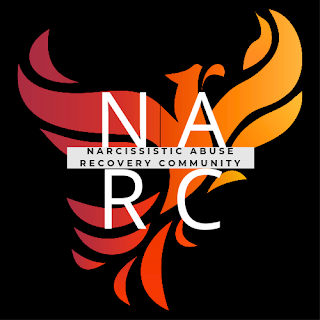Unraveling the Deception: The Narcissist's Complex Web of Lies
Unraveling the Deception: The Narcissist's Complex Web of Lies
Welcome back to our Narcissistic Abuse Recovery Community Blog and Podcast! Today, we're diving into the tangled world of narcissistic deception. Let's peel back the layers and explore why narcissists rarely choose to tell the truth.
Narcissists lack a solid sense of self. They're like actors on a stage, always playing a role to appear flawless and admirable. But behind that facade lies a deep fear of being exposed for who they really are. This fear drives them to construct an elaborate web of lies to protect their fragile egos and maintain their carefully crafted images.
Imagine if a narcissist were suddenly honest with you. Would you still want to be with them? Probably not, because honesty goes against their very nature. Lying isn't just a habit for them; it's a way of life. They lie to manipulate and exploit others, to boost their ego, and to maintain control over their surroundings. Honesty would reveal their vulnerabilities and imperfections, something they go to great lengths to conceal.
In a relationship with a narcissist, truth and fiction blur together. They'll tell you everything you want to hear and show you what you want to see, all to keep you hooked into their game. As long as you buy into their lies, they can keep using you for their own gain. This constant deception serves multiple purposes: it reinforces their sense of superiority, ensures your compliance, and keeps you emotionally entangled in their world.
Narcissists will not be honest with you, and you cannot believe a single word they say. If they were honest, you wouldn’t want to be with them. If a narcissist were honest, they would be alone because no one would want to be with them. This fear of abandonment drives them to perpetuate their deceitful behavior, ensuring they always have someone to manipulate and control.
The narcissist cannot survive on their own. They need sources of supply, so they lie because it is their only way to live. A narcissist lies to make you admire them, to make you see them as someone else, because then it is easier for them to believe in their own lies, in the illusion they create. They fabricate a persona that is charming, successful, and infallible, all the while hiding their true selves behind this mask.
A narcissist will not tell you that they do things you are not aware of, that you are one of many, that you are an object, someone temporary. They will not tell you that they are on many dating apps, nor will they tell you that they tell everyone something completely different. The extent of their deceit is staggering, as they maintain multiple facades for different people, each tailored to extract the maximum benefit.
The narcissist not only lies to you, but they also lie to everyone, including themselves. They tell you what they have to say, use lovebombing to make you feel good for a moment, make you calm down, and think that everything is fine. However, in reality, the narcissist does what they want, and you may not suspect anything. They use these tactics to keep you off balance, ensuring that you remain in a state of confusion and dependency.
So, how do you navigate this web of deception? First, trust your instincts. If something feels off, it probably is. Document incidents of lying, manipulation, and other abusive behaviors. This documentation can be crucial if you decide to take legal action or need evidence to support your experiences.
Seek support from trusted friends, family, or professionals. Building a support network is essential for maintaining your sanity and gaining perspective on your situation. It can be incredibly validating to have others recognize the truth of your experiences and offer their support.
Setting firm boundaries is key to protecting yourself from manipulation. Clearly communicate your limits and the consequences for crossing them. Stand firm in maintaining these boundaries, even if the narcissist tries to push back. This is crucial for reclaiming your autonomy and self-respect.
Understanding the narcissist's lack of authenticity and recognizing their deceptive tactics is the first step toward breaking free from their grip. By educating yourself about narcissistic behavior and the underlying psychological mechanisms, you can begin to see through the lies and manipulations.
It's time to reclaim your autonomy and start living life on your own terms. This process may be challenging and require significant emotional effort, but it is possible. Therapy can be an invaluable tool in this journey, helping you to process your experiences, rebuild your self-esteem, and develop healthier relational patterns.
Thank you for tuning in to today's discussion on the Narcissistic Abuse Recovery Community Blog and Podcast. Remember, you're not alone on this journey to healing and empowerment. Stay tuned for more insights and personal stories, and don't forget to check out Daniel's book, Voiceless: The Silent Epidemic of Suicide Due to Narcissistic Abuse, available now on Amazon worldwide.




Comments
Post a Comment
Please leave a comment